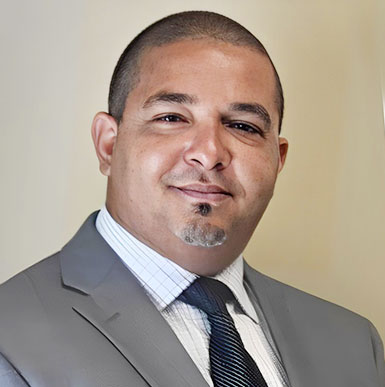When facing false accusations, you’ll need to take immediate protective action. Don’t discuss the case with anyone before securing an experienced defense attorney who specializes in similar cases. Document all interactions, preserve potential evidence, and maintain detailed records of everything related to the accusations. Build a strong support team including investigators, paralegals, and relevant specialists. Your swift, strategic response and thorough documentation will form the foundation for establishing your innocence.
The Critical First Steps After Being Falsely Accused

When facing false accusations, your immediate actions can substantially impact the outcome of your legal defense. While managing emotional turmoil is challenging, you must maintain composure and resist the urge to defend yourself publicly or confront your accusers. Instead, exercise your right to remain silent and immediately seek legal representation.
As you navigate social stigma, avoid discussing the case on social media or with others, as any statements can potentially be used against you. Document all interactions related to the accusations, including dates, times, and contexts. Preserve any evidence that could support your defense, such as alibis, digital records, or physical proof of your whereabouts. Maintaining meticulous records becomes especially crucial during contentious divorce or custody battles. Credible witnesses and their statements can significantly strengthen your defense against false allegations.
Remember to respond only with required information when interacting with authorities, and always have your attorney present during questioning.
Assembling Your Legal Defense Team

When facing false accusations, you’ll need to carefully select a lead defense attorney with proven experience handling similar cases and a track record of successfully challenging false claims.
You should complement your primary counsel with a network of specialists, including private investigators, forensic experts, and mental health professionals who can provide essential technical and analytical support.
Your defense team must operate with clearly defined roles and responsibilities, ensuring seamless coordination between legal strategy, evidence gathering, and witness preparation. Having skilled legal representation can decrease the likelihood of a wrongful conviction by up to 30 percent through effective defense strategies. Your attorney’s primary duty is to ensure the burden of proof remains firmly with the prosecution while building your defense case.
Choose Experienced Defense Counsel
Selecting experienced defense counsel stands as the most critical decision you’ll make when facing false accusations. You’ll need an attorney who’s deeply familiar with local court procedures and has a proven track record handling similar cases in your jurisdiction. Your counsel should demonstrate extensive knowledge of criminal law while maintaining strong relationships within the legal community. Your attorney must be committed to providing zealous representation throughout every stage of your criminal case. The attorney should exhibit good bedside manner while discussing your case details and legal options.
Look for a lawyer who’s responsive to communications and can explain complex legal concepts clearly. They should have access to essential defense team resourcing, including investigative services and expert witnesses. Evaluate their experience through past case outcomes, professional reviews, and their understanding of jurisdiction-specific practices. During your initial consultation, assess their ability to provide detailed answers and develop strategic approaches customized to your situation. Remember, your attorney’s expertise directly impacts your defense’s effectiveness.
Build Multi-Disciplinary Support Network
Building a sturdy multi-disciplinary support network proves essential for mounting an effective defense against false accusations. By leveraging multi-disciplinary expertise across legal, investigative, and operational domains, you’ll create a formidable defense infrastructure. Regular structural reviews by innovative counsel can help optimize and adjust the defense team’s organization as the case evolves. A clear reporting structure helps ensure proper mentoring and career development for the legal team members.
Start by cultivating collaborative relationships between specialized attorneys, investigators, and support staff who’ll work cohesively to strengthen your case.
- Engage criminal defense attorneys who’ll collaborate with IP specialists and regulatory experts
- Deploy professional investigators to gather evidence and interview witnesses
- Utilize paralegals and legal assistants for exhaustive document management
- Coordinate with IT teams to secure digital evidence and maintain cybersecurity
- Partner with communications experts to manage public relations aspects effectively
This integrated approach guarantees your defense team can address complex legal challenges while maintaining operational efficiency throughout your case’s lifecycle.
Define Clear Team Roles
The cornerstone of a successful legal defense lies in defining clear, unambiguous roles for each team member. You’ll want your core attorneys focusing on legal strategy and constitutional protections while paralegals handle critical documentation and filing requirements.
Establish transparent accountability by guaranteeing investigators independently manage evidence gathering and witness interviews. Consider having senior partners oversee the most critical aspects of your defense strategy, as they typically handle high-profile cases requiring extensive experience.
Your compliance specialists should oversee risk management and procedural standards, maintaining clear team communication channels between all parties. The Chief Compliance Officer typically leads ethics and compliance training to ensure all defense protocols meet regulatory requirements. Leadership must coordinate these moving parts through standardized protocols and performance tracking.
When each team member understands their specific responsibilities, they’ll work more efficiently in the direction of your defense goals. Assign deputy defenders to coordinate between teams and monitor progress. This structured approach prevents duplication of efforts and guarantees no critical defense elements fall through the cracks.
Documenting and Preserving Essential Evidence

Successful defense against false accusations hinges on detailed documentation and preservation of evidence. You’ll need to focus on storing digital evidence securely while preserving chain of custody through every step. Create extensive logs of all collected materials, from surveillance footage to witness statements, ensuring each piece remains tamper-proof and properly authenticated.
Seal physical evidence in marked, tamper-evident containers with dated receipts. Back up digital communications to encrypted cloud storage and external drives. Record witness interviews using professional equipment in controlled settings. Always invoke your rights when being questioned about accusations to avoid self-incrimination. Photograph and document physical evidence before secure storage. Maintain detailed chain-of-custody forms tracking every evidence transfer.
Document everything precisely – even seemingly minor details could become essential to your defense. Work with forensic experts to analyze evidence professionally and establish clear timelines that support your case. Remember, proper evidence preservation can make the difference between vindication and conviction.
Understanding Your Legal Rights and Options
You must be strategic about when to speak to investigators, as anything you say can be used against you even if you’re innocent. It’s critical to understand your Fifth Amendment right against self-incrimination and to exercise it properly when questioned about allegations.
Your initial priority should be securing qualified legal representation before making any statements to law enforcement, as your attorney will protect your interests and guide your communications throughout the process. Working with an experienced criminal defense attorney is essential for fighting the charges effectively.
Consider taking a private polygraph test as part of your defense strategy, as the results could potentially persuade prosecutors to drop or reduce the charges against you.
Know When to Speak
Every false accusation presents critical moments when speaking or remaining silent – can substantially impact your legal defense. When evaluating the credibility of accusations, you must carefully weigh each opportunity to speak against potential risks. Limiting disclosure early helps preserve your legal options while avoiding inadvertent admissions that could harm your case.
Keep your responses clear and factual when speaking with authorities. Document exact words used in any statements you make. Direct all inquiries to your attorney once legal representation begins. Eyewitness testimony can be particularly unreliable and should be carefully scrutinized. Avoid discussing allegations on social media or in casual conversations. Keep in mind that informal statements can become formal evidence.
Let your attorney guide when and how you communicate about the accusations. This strategic approach helps maintain control of your narrative while protecting your legal interests throughout the defense process.
Invoke Fifth Amendment Rights
When facing false accusations, properly invoking Fifth Amendment rights serves as a paramount legal shield against self-incrimination. The timing of invoking these protections is essential you must assert them unequivocally before answering any questions from authorities or participating in legal proceedings.
To effectively use these procedural safeguards, state clearly “I invoke my Fifth Amendment rights” and remain silent until you’ve consulted with counsel. Miranda warnings must be provided by law enforcement when taking someone into custody. Remember, these protections apply to both oral testimony and document production in criminal and civil cases. You’re entitled to this protection regardless of guilt, and juries can’t draw negative inferences from your silence.
Even if you’re innocent, invoking your Fifth Amendment rights helps prevent entanglement in false accusation traps, blocks misinterpretation of statements, and preserves your presumption of innocence while reducing exposure to additional charges.
Request Legal Representation Immediately
Beyond invoking Fifth Amendment rights, securing immediate legal representation stands as the cornerstone of an effective defense against false accusations. When you’re facing criminal charges, it’s essential to consult a criminal lawyer immediately to protect your interests and navigate the complex legal system. Don’t wait to retain legal counsel, as early intervention can profoundly impact your case’s outcome.
Watch your attorney scrutinize surveillance footage and digital records for evidence supporting your innocence. See your legal team interview key witnesses and document their statements. Experience professional guidance through bail hearings and court proceedings. Observe your counsel building a strategic defense timeline. Witness your lawyer challenge inconsistencies in the accuser’s statements.
Remember: The sooner you secure representation, the more time your attorney has to gather evidence, develop defense strategies, and protect your rights.
Strategic Approaches to Witness Management
Strategic approaches to witness management require an inclusive framework that balances witness protection, testimony preparation, and psychological support. You’ll need to establish confidentiality agreements early to safeguard witness identities and guarantee third parties maintain strict silence about case details. Implement post-testimony monitoring to assess ongoing threats and adjust protection measures accordingly.
Focus on preparing witnesses through role-playing exercises that simulate hostile questioning and document-focused rehearsals. Train them to maintain composure, deliver concise answers, and avoid speculative statements during cross-examination. Address potential vulnerabilities by identifying communication challenges and managing inherent biases. Emphasize proper courtroom presence through body language training and strategic response pacing. Ensure effective witness management extends beyond testimony to include comprehensive emotional and security support throughout the legal process.
Leveraging Expert Testimony and Analysis
Effective utilization of expert testimony requires a thorough approach to establishing credibility, challenging opposing experts, and presenting compelling technical evidence. When leveraging expert credibility, you’ll need to verify qualifications, demonstrate relevant experience, and guarantee adherence to proven methodologies.
In challenging opposing experts, focus on identifying methodological flaws and exposing potential biases that could undermine their testimony’s reliability.
- A forensic accountant painstakingly analyzing financial records to expose inconsistencies
- A DNA expert conducting independent testing to challenge prosecution findings
- A digital forensics specialist recovering deleted data to support your defense
- A psychological expert evaluating witness credibility through established protocols
- A multidisciplinary team collaborating to create an all-encompassing defense strategy
Your success depends on selecting qualified experts whose findings can withstand rigorous cross-examination while effectively communicating complex technical concepts to the jury.
Managing Public Relations During Legal Proceedings
While expert testimony strengthens your legal defense in court, managing public perception requires equal attention and expertise. To influence media narratives effectively, you’ll need to implement real-time social media monitoring and establish rapid response protocols for misinformation.
Coordinate legal PR strategy with your attorneys to guarantee public statements align with courtroom objectives while protecting attorney-client privilege.
You should proactively distribute fact-based information through official channels and engage key journalists to maintain narrative control. Track case-related hashtags and trending topics to address potentially damaging stories before they gain traction.
When responding to media inquiries, rely on pre-approved statements that support your legal position without compromising sensitive details. Remember to document all communications and maintain transparency on non-confidential aspects to build credibility with stakeholders.
Building a Strong Counter-Narrative
Building a powerful counter-narrative demands scrupulous attention to both factual evidence and psychological impact. When crafting persuasive narratives against false accusations, you’ll need to systematically dismantle the prosecution’s claims while shaping juror perceptions through relatable, authentic storytelling.
Effective counter-narratives balance hard evidence with emotional resonance, methodically deconstructing false claims while building authentic connections with jurors.
Focus on presenting irrefutable evidence that supports your version of events while highlighting inconsistencies in the accuser’s testimony.
- Present a chronological timeline supported by concrete documentation
- Incorporate expert testimony that scientifically validates your position
- Demonstrate character witnesses who can attest to your consistent behavior patterns
- Showcase physical evidence that contradicts the accusation’s core claims
- Utilize visual aids and forensic analysis to illustrate technical discrepancies
Your counter-narrative must weave together factual evidence, expert analysis, and human elements to create a compelling defense that resonates with both logic and emotion.
Protecting Your Reputation and Future Interests
Protecting your reputation against false accusations requires immediate, strategic action well before formal charges materialize. You’ll need to coordinate with legal counsel to manage all public communications and secure your digital footprint to prevent misinterpretation of private messages. Implement sturdy reputation recovery plans that include monitoring your online presence and addressing defamatory content promptly.
Focus on restorative public outreach through strategic PR campaigns while simultaneously building your legal defense. Work with crisis management specialists to develop counter-narratives that highlight your innocence without compromising your legal position. Consider filing defamation lawsuits when appropriate, and document all instances of false statements for potential civil action. After resolution, pursue record expungement and continue reputation management efforts to safeguard your professional and personal future.
Frequently Asked Questions
How Long Does It Typically Take to Resolve a False Accusation Case?
You’ll find that false accusation cases vary considerably in their legal proceedings timeline, typically ranging from several months to multiple years. Minor misdemeanors might resolve within 3-6 months, while complex felony cases often take 2-5 years or longer.
The statute of limitations considerations also impact case duration. You’ll need to account for potential appeals, which can extend the process, especially in cases involving DNA evidence or prosecutorial misconduct.
What Are the Average Legal Costs for Defending Against False Accusations?
You’ll typically face legal defense fees ranging from $5,000 to over $100,000, depending on your case’s complexity. Basic cases with minor charges may cost you $5,000-$25,000, while complex federal cases can exceed $100,000.
Court filing expenses supplement $200-$500, plus additional costs for expert witnesses ($2,000-$5,000) and investigative work. You can reduce costs through contingency fee arrangements, where your attorney takes a percentage of any settlement or judgment.
Can I Continue Working While Fighting False Accusations Against Me?
Yes, you can typically continue working during an investigation of false accusations. Focus on maintaining your workplace reputation through consistent performance and professionalism.
Continue your professional development activities and regular duties unless your employer’s policies require temporary leave. Document all interactions carefully and cooperate with HR investigations while asserting your rights.
If the work environment becomes hostile, you may negotiate temporary leave arrangements while the investigation proceeds.
Should I Tell My Family Members About the False Accusations?
Before telling your family about false accusations, carefully evaluate family dynamics and discuss confidentiality concerns with your attorney. You’ll need to weigh the benefits of emotional support against privacy risks.
If you decide to share, limit details to essential information and be clear about confidentiality expectations. You don’t have to tell everyone choose trusted family members who can provide support while respecting legal boundaries and maintaining discretion.
What Psychological Support Resources Are Available for Falsely Accused Individuals?
You’ll find several essential psychological support resources available. Professional counseling services, particularly those specializing in trauma, can help you process emotions and develop coping strategies.
Online and in-person support groups connect you with others who’ve faced similar situations, reducing isolation. Consider joining platforms like Grouport Therapy for remote CBT sessions, or connect with organizations like the Innocence Project that offer specialized support networks and resources.

